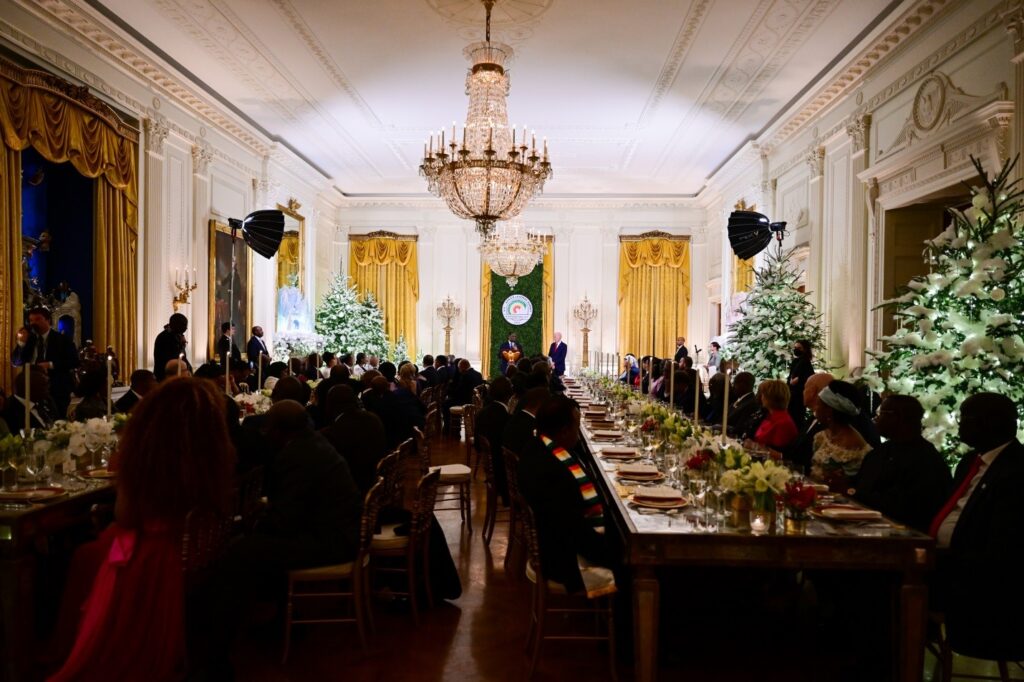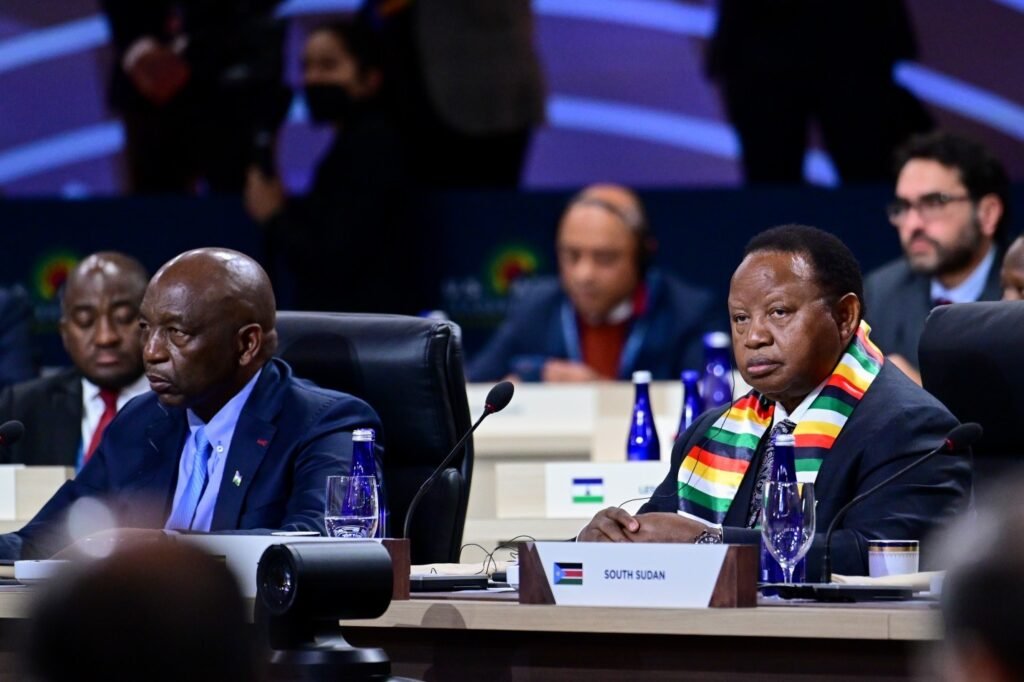By Pearl Matibe
Last week, Frederick Makamure Shava, Minister of Foreign Affairs and International Trade of the Republic of Zimbabwe, represented the President of the country at the U.S.-Africa Leaders Summit 2022 hosted by the United States President, Joseph Biden in Washington, D.C., between the 13th and 14th of December—a three-day event.
Karine Jean-Pierre, White House press secretary, said before the Summit’s start that, “This summit is an opportunity to deepen the many partnerships we have on the African continent,” and explained further that, ‘We will focus on our efforts to strengthen these partnerships across a wide range of sectors spanning from businesses to health to peace and security, but our focus will be on Africa next week.”
President Biden said, “Africa’s success is the world’s success.” For the Biden administration to directly engage with, “with African leaders, as well as civil society, business, diaspora, women, and youth leaders,” is antithetical to Zimbabwe’s legislative discourse on a previously proposed Patriot Bill which sought to criminalised the Zimbabwean citizens’ direct engagement with foreign actors.” At the time, the proposals by former ZANU-PF MP for Mberengwa South, Alum Mpofu and the ZANU-PF Chief Whip, Togarepi Pupurai were very broad and related to promulgating a Patriot Bill.
The Summit dedicated a session on its first day to a theme titled: “Amplifying Voices: Building Partnerships that Last” in its African and Diaspora Young Leaders Forum. This is because President Biden wished to make clear that from his viewpoint, the “African Diaspora is a source of strength.”
The purpose of the Forum was to heighten the U.S. Government (USG), “diaspora engagement to strengthen the dialogue between U.S. officials and the diaspora in the United States and provide a platform for young African and diaspora leaders to fashion innovative solutions to pressing challenges.
The forum featured three breakout sessions on higher education, the creative industries, and environmental equity.” Questions remain on whether Zimbabwean citizens, like civil society leaders, the diaspora, youth, and women would then be criminalized for directly engaging with USG officials.
Unlike the Obama administration’s U.S.-Africa Leaders Summit 2014, when Zimbabwe was not invited, this Summit provided Zimbabwe with an opportunity to show up and engage. Prior to his arrival in Washington, the U.S. Charge d’Affaires in Harare, Elaine French tweeted that she had “met with Zimbabwe Minister of Finance Mthuli Ncube to discuss opportunities to strengthen economic ties between the United States and Zimbabwe.”
However, no deals were signed with U.S. businesses, nor memoranda of understanding signed with the USG, nor was a bilateral meeting held between the USG and Zimbabwe, unlike the Millenium Challenge Corporation (MCC) signing a huge compact with other countries.
The MCC “completed compact negotiations with the Governments of Benin and Niger for a combined $504 million Benin-Niger Proposed Regional Transport Compact.”

A U.S. Department of State spokesperson on Thursday, 15 December, confirmed that Minister Shava would have had many opportunities for engagement, stating that although they did not have any new information on a bilateral meeting at the time this article was going to press “Each delegation will have extensive opportunities for high-level engagement through plenary discussions, the Head of State dinner, and side meetings. President Biden, Vice President Harris, Secretary Blinken, and other senior U.S. Government officials look forward to meaningful conversations with all the Heads of Delegation across the various sessions.”
This signals another positive for Zimbabwe’s government because the fabric of engagement that Minister Shava had at the U.S.-Africa Leaders Summit, as the Head of Delegation, included his attendance at the White House dinner on the evening of the Summit’s second day, a photo opportunity with President Biden, The White House confirmed that President Biden and the U.S. First Lady participated in a photoline which included Minister Shava and his spouse, Mrs. Beatrice Foya Shava.

Shava’s attendance at the Business Forum was yet another engagement opportunity, as was his attendance at Food Security discussions. President Biden made remarks at this Summit’s session on Food Security and was joined by three of his Cabinet Ministers, Secretary of the Treasury, Janet Yellen, Secretary Antony Blinken, U.S. Department of State, and Secretary Tom Vilsack, U.S. Department of Agriculture, as well as about 48 Heads of State and Government and Heads of Delegations, USG officials, business leaders, and members of the U.S. Congress. The State Department confirms that the objective of the U.S.-Africa Leaders Summit was, “also served as an opportunity to listen to and collaborate with African counterparts on key areas the United States and Africa define as critical for the future of the continent and our global community.”

The Peace, Security, and Governance Forum, themed: “Delivering Democracy and Security Dividends,” Shava was also in attendance. At this Forum within the Summit, “senior U.S. and African leaders exchanged views on how security, stability, and sustainable democracy require an integrated approach and clear focus on governance…U.S. Cabinet leadership representing diplomacy, development and defense discussed the strengths and challenges associated with a whole of government approach and explored how the U.S. and African countries can collaboratively innovate on solutions to security through partnership.”
At the conclusion of the Forum, White House Correspondent, Pearl Matibe, asked Shava about Zimbabwe’s involvement in resolving insurgency and violent extremism in northern Mozambique. He provided his comments at the conclusion of the Peace, Security, and Governance Forum, on Tuesday, 13 December in Washington.
He said, “An attack on Mozambique, or any SADC country, is an attack on all of us. It is for this reason that Zimbabwe is part of SAMIM that is trying to assist Mozambique to get rid of the menace in the Cabo Delgado Province.” He expressed satisfaction on the multilateral role SADC is playing in Mozambique.
He said, “The fact that we are there shows our determination to assist Mozambique.” Minister Shava detailed more on this issue stating that, “Zimbabwe, in particular, also plays a second role, as a trainer of Mozambicans.”
Moreover, he said, “We do train. We assist Mozambique to train their police and part of their army units so that they can take control of those areas which will have been freed of the menace in Cabo Delgado.” The Southern African Development Community (SADC) Mission in Mozambique (SAMIM) is now a multi-dimensional operation in Mozambique.
In addition to these interactions, Shava would also have had ample opportunities throughout the Summit to engage with the USG through allies and interlocutors.
On the economic opportunities identified in Ncube’s meeting with French, several attempts were made to seek comment from the U.S. Embassy in Harare and from the U.S. Department of State in Washington on the tweet posted on the 17th of November by the U.S. Chargé d’affaires based in Harare. No responses were received at the time of going to press.
Pearl Matibe is a Washington, DC-based foreign correspondent, and media commentator with expertise on U.S. foreign policy and international security. You may follow her on Twitter: @PearlMatibe



